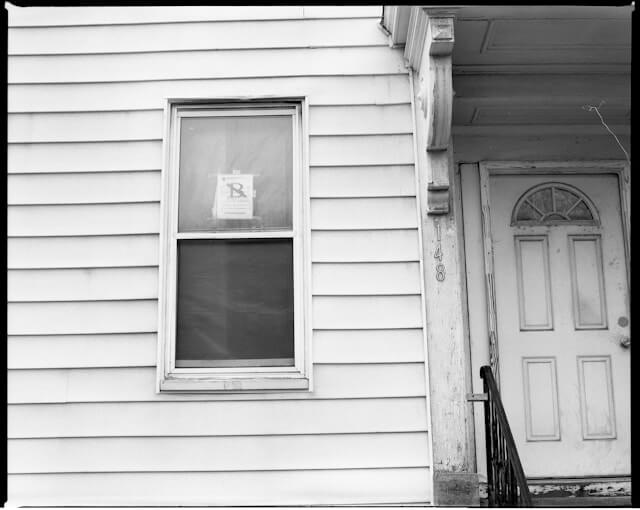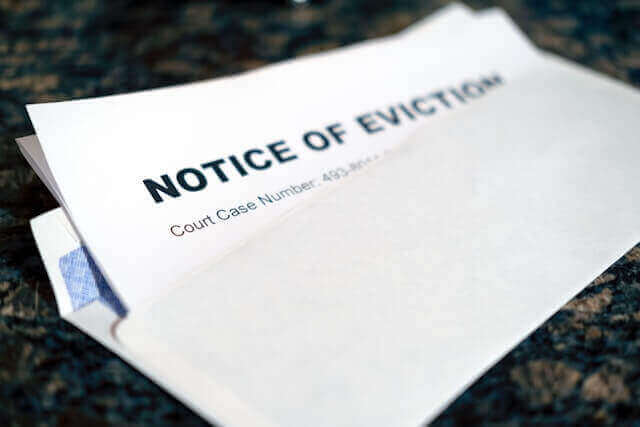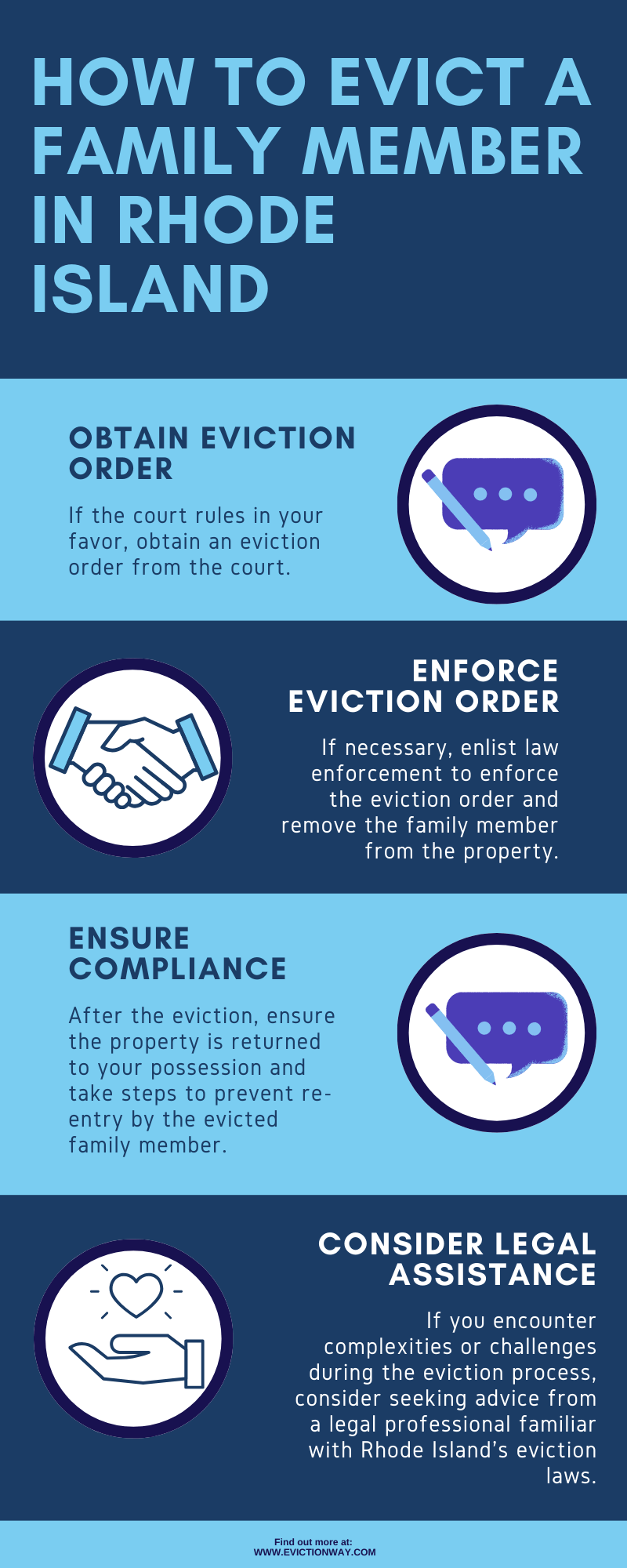Evicting a family member can be a difficult and emotional process, but it is important to know your rights and the steps involved. In this blog post, we will discuss how to evict a family member in Rhode Island. We will share the best way to evict a family member in Rhode Island, and we will provide tips on removing a family member politely.
If you are considering evicting a family member, it is important to first try to resolve the issue amicably. This may involve talking to your family member about their behavior and setting clear boundaries. If this does not work, you may need to take legal action.
The process for evicting a family member in Rhode Island is similar to the process for evicting any other tenant. You will need to give your family member a written notice to vacate the property. The notice must state the reason for the eviction and the date by which your family member must leave. If your family member does not leave by the deadline, you can file a complaint with the court.

How To Evict a Family Member In Rhode Island
Evicting a family member can be a difficult and emotional process. However, it is important to remember that you have the right to protect your property and your family.
1. Give Proper Notice
The first step in evicting a family member is to give them proper notice. In Rhode Island, you must give at least 30 days’ written notice to vacate the property.
2. File a Complaint with the Court
If your family member does not vacate the property after you have given them notice, you will need to file a complaint with the court. The complaint should state the reason for the eviction and request that the court order your family member to leave the property.
3. Attend a Court Hearing
Once you have filed a complaint, you will need to attend a court hearing. At the hearing, you will have the opportunity to present your case to the judge. The judge will then make a decision about whether or not to evict your family member.

4. Obtain a Writ of Possession
If the judge orders your family member to leave the property, you will need to obtain a writ of possession. A writ of possession is a court order that authorizes the sheriff to remove your family member from the property.
5. Have the Sheriff Remove Your Family Member
Once you have obtained a writ of possession, you can have the sheriff remove your family member from the property. The sheriff will usually give your family member a few hours to gather their belongings before they are removed.
6. Change the Locks
Once your family member has been removed from the property, you should change the locks. This will help to prevent them from re-entering the property without your permission.
How Much Does it Cost to Evict a Family Member in Rhode Island?
The cost of evicting a family member in Rhode Island can vary depending on the circumstances of the case. However, there are some general costs that you can expect to incur.
| Description | Estimated Cost Range |
|---|---|
| Court Filing Fees | $55 – $175 |
| Attorney Fees | $1,000 – $5,000+ |
| Process Server Fees | $45 – $100 |
| Costs of Physical Eviction | Varies |
| Loss of Rent | Varies by rental income |
| Property Damage Repairs | Varies |
| Costs for Storage of Property | Varies |
- Filing fee: The filing fee for an eviction case in Rhode Island is $120.
- Service of process: The cost of serving the eviction notice to the tenant is typically between $50 and $100.
- Attorney fees: If you hire an attorney to represent you in the eviction case, you can expect to pay between $500 and $1,500.
- Court costs: There may be additional court costs associated with the eviction process, such as the cost of filing a motion or obtaining a judgment.

FAQs: Evicting a Family Member in Rhode Island
Here are some of the most frequently asked questions about evicting a family member in the Rhode Island:
What are the grounds for evicting a family member in Rhode Island?
In Rhode Island, you can evict a family member if they have violated the terms of their tenancy, such as by not paying rent or damaging the property. You can also evict a family member if they are engaging in illegal activities or if they are a danger to you or other tenants.
What is the process for evicting a family member in Rhode Island?
The process for evicting a family member in Rhode Island is similar to the process for evicting any other tenant. You must first give your family member a written notice to vacate the property. The notice must state the reason for the eviction and the date by which your family member must leave. If your family member does not leave by the date specified in the notice, you can file a complaint with the court.
Can I evict a family member if they are not on the lease?
Yes, you can evict a family member even if they are not on the lease. However, you will need to prove that the family member is a tenant and that they have violated the terms of their tenancy.

What are some of the common defenses to eviction in Rhode Island?
Some of the common defenses to eviction in Rhode Island include:
- The tenant did not violate the terms of their tenancy.
- The landlord did not give the tenant proper notice to vacate.
- The eviction is retaliatory.
- The tenant has a disability that makes it difficult for them to find alternative housing.
- What should I do if I am being evicted by a family member?
If you are being evicted by a family member, you should seek legal advice immediately. An attorney can help you understand your rights and options and can represent you in court.
Related:
